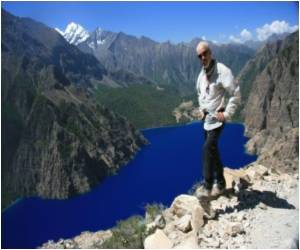A new report has underlined the need for immediate action to protect the lives of billions of people whose lives will change due to the slowly melting Himalayan glaciers.

"This report lays out what are the potential impacts of glacier melt on sectors such as health and agriculture while exploring how USAID programs could respond to the challenges of changing water supplies," said Mary Melnyk, a USAID natural resource management senior advisor.
Many people who live in High Asia and along the river basins fed by the region's glaciers already experience malnutrition and food insecurity, insufficient access to clean water and sanitation, and other issues that will be exacerbated by climate change and population growth.
Although Himalayan glaciers are located in elevations higher and colder than many other glacier systems, there's little historical information about High Asian glaciers to predict their future.
One of the most pressing near-term impacts that scientists can study are glacier lake outburst floods. These floods are due to slow melting and occur on a smaller scale and typically happen when an advancing glacier dams a river or water builds up behind soil and rocks deposited by a glacier.
Glacier lake floods can be so destructive "that people who survive must move and begin to rebuild their lives in other places," the report noted.
Advertisement
Diarrhoea and other diseases linked to biological and chemical contamination are likely, the report noted.
Advertisement
Programs that focus on agriculture could improve water efficiency and help address water scarcity.
Development agencies could work with scientists, health specialists, technology experts and government officials to develop and make accessible cooking stoves that are more efficient and create fewer emissions.
"This report offers a menu of options on how those assets can also be used to address the many issues that will arise from climate change," Malone said.
Source-ANI








